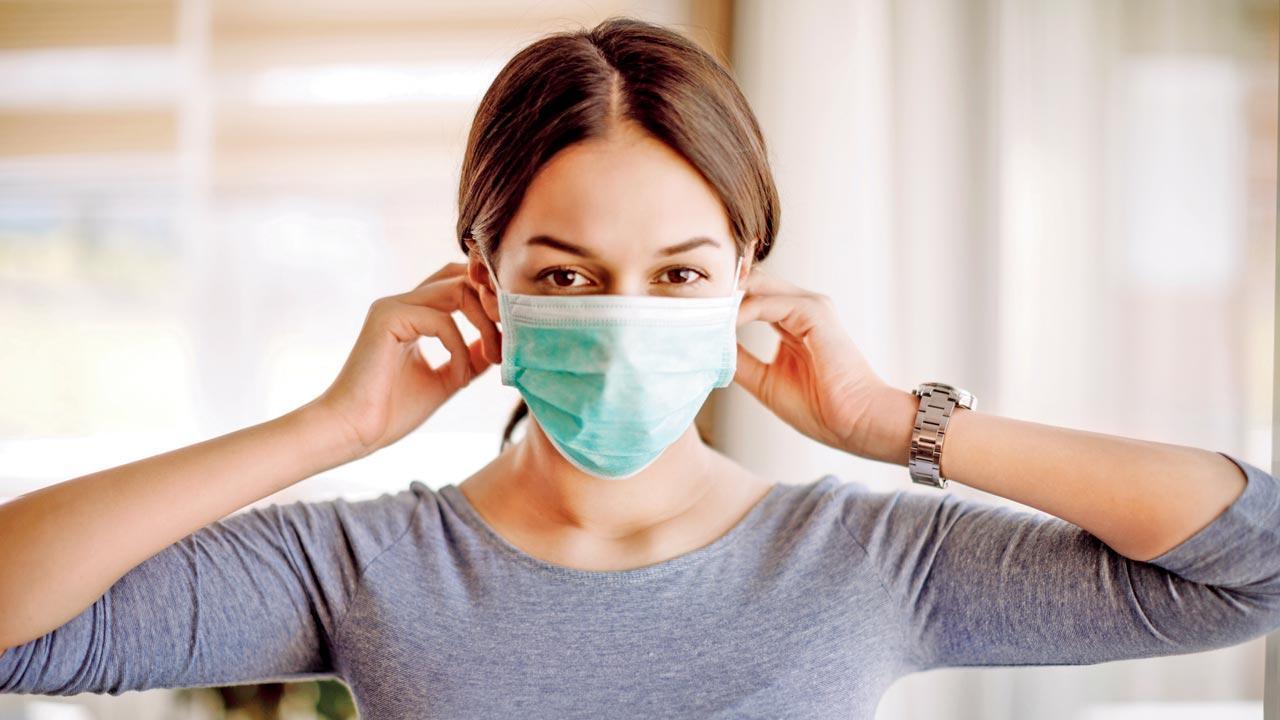Extended periods of wearing a face mask can affect your oral health. Here’s how to safeguard your dental hygiene

Change your mask frequently to avoid bacterial growth. Representation pic
While the importance of mask-wearing cannot be undermined, it also turns out that long periods of wearing a mask can cause a slew of oral hygiene-related concerns. Collectively termed as mask mouth, this condition is typified by dry mouth, bad breath (halitosis), tooth decay, and even inflammatory gum disease. There are a number of factors that come together to create this condition, explains Dr Neetika Modi, a dental surgeon and holistic wellness consultant at Studio Aesthetique.
ADVERTISEMENT
 Dr Neetika Modi
Dr Neetika Modi
Teething concerns
“Wearing a mask can impact breathing pattern, leading to more rapid, shallow breaths using your mouth, chest, and neck instead of your diaphragm. Breathing out of your mouth decreases the amount of saliva in your mouth. Saliva plays a crucial role in your oral health by washing away food debris and defending your teeth from cavities. Also, many people who wear masks for extended durations neglect to drink enough water. The resulting dehydration can lead to a dry mouth, increasing the chances of tooth decay and bad breath. Finally, a face mask traps more carbon dioxide in the mouth, which can increase the acidity of your oral microbiome. This, again, increases the risk of inflammation in your gums and other infections,” Dr Modi explains, adding that in the case of children who tend to avoid eating while wearing a mask, late night snacking on carbohydrate-rich foods can cause dental decay. Fortunately, this condition is quite easy to reverse if arrested in a timely manner, she points out.
 Sensitive gums and teeth are an indication of mask mouth
Sensitive gums and teeth are an indication of mask mouth
Mask up with care
The first and most important step is to focus on oral care. “Brush your teeth for two minutes twice a day and clean between your teeth with floss or other interdental devices daily. You can also use a mouthwash to freshen your breath and fight bacteria between cleanings. Ask your dentist to recommend a mouthwash that does not exacerbate oral dryness. Practice pranayam and other breathing exercises to correct your breathing pattern,” Dr Modi explains. Contact a professional if you experience bad breath, bleeding while brushing your teeth or sensitivity in your teeth and gums. Additionally, she stresses on the importance of drinking enough water throughout the day and limiting your consumption of alcohol and coffee, which can cause dehydration. Finally, regularly replace or clean your face mask to prevent bacterial growth. In case of disposable masks, make sure to use a fresh one every day and wash your cloth masks after every use. “A dental check up every six months can enable early detection and correction of any irregularities in your oral health,” Dr Modi concludes.
 Subscribe today by clicking the link and stay updated with the latest news!" Click here!
Subscribe today by clicking the link and stay updated with the latest news!" Click here!








